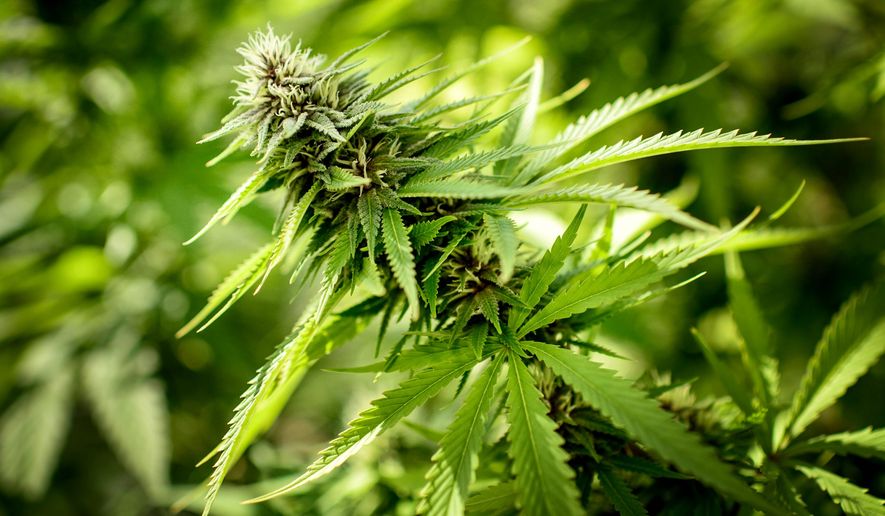Congress’ openness toward marijuana use continues to grow, with the House voting Wednesday to prevent the Justice Department from meddling in states that allow medicinal use of the drug and signaling growing support for even broader protections of legalized pot.
The chamber voted to lay off medical marijuana, 242-186, for the second year in a row, and a bid to stop meddling in states that allow recreational use fell shy of a majority. Both votes showed support has grown.
The House voted amid debate on the Justice Department’s annual spending bill, which controls federal law enforcement.
Marijuana legalization advocates said the level of support indicates that the time has come for broader consideration of rewriting drug policy.
“Now that the House has gone on record with strong bipartisan votes for two years in a row to oppose using federal funds to interfere with state medical marijuana laws, it’s time for Congress to take up comprehensive legislation to actually change federal law,” said Tom Angell, chairman of the Marijuana Majority, a group that supports decriminalization. “That’s what a growing majority of Americans wants, and these votes show that lawmakers are on board as well.”
Marijuana remains illegal under federal law, but four states and the District of Columbia have legalized the drug for recreational purposes. Nearly half the states, the District and Guam have medicinal pot programs.
The conflicting rules have forced the Justice Department to say it will turn a blind eye in states that legalize the drug, even as some federal prosecutors crack down on dispensaries or other marijuana operations in their districts.
Pot advocates say it’s up to Congress to clear the air. They argue that marijuana is less harmful than alcohol and that it’s better to regulate the drug than let sales fester on the black market.
Critics say marijuana reduces memory, IQ and ambition — particularly among children — so there is no reason to hamstring the Drug Enforcement Administration.
“The idea of medical marijuana is a joke,” Rep. John Fleming, Louisiana Republican, said in late-night debate before the daytime votes. “It’s an end run around the laws. There are more pot shops in California than there are Starbucks or McDonald’s.”
His comments underscored the divide among Republicans, who voted Wednesday against amendments to the Justice Department’s funding bill in much greater numbers than Democrats, even though GOP members sponsored both measures.
Rep. Dana Rohrabacher, the California Republican who pushed the medical marijuana provision, said federal authorities should use their cash-strapped budgets to target terrorists and criminals instead of keeping sick people “from using a weed that may or may not alleviate their suffering.”
He was able to sway 67 Republicans. Rep. Tom McClintock, a fellow California Republican, was able to persuade only 45 Republicans to support his bid to recognize states that have legalized marijuana for recreational use, en route to a 222-206 defeat.
Marijuana advocates hailed the close vote as a sign that attitudes are shifting in their favor.
The medical marijuana amendment has been offered eight times since 2003 and passed for the first time last year, yet Mr. McClintock’s measure was unprecedented, said Dan Riffle, director of federal policy for the Marijuana Policy Project.
“This is the first time this amendment has been offered, and it received an impressive amount of support,” he said. “It’s not really a question of whether this measure will pass; it’s a question of when it will pass.”
Mr. McClintock cast his amendment as a check on federal power instead of an ambitious foray into drug policy, an appeal designed to resonate with his fellow Republicans’ fondness for states’ rights.
“We have the opportunity to watch what comes of various state policies on this issue and benefit from that experience. That’s what federalism is all about,” he said in a phone interview.
Colorado, Washington state, Alaska and Oregon have allowed adults to possess small amounts of marijuana for personal use.
D.C. residents also voted to legalize marijuana, but Congress has blocked the city from implementing any laws to regulate it or tax its sale, citing its constitutional right to the last word on laws in the nation’s capital.
Also this week, the House voted to siphon $9 million in salaries and expenses from the Drug Enforcement Administration and use it to reduce the deficit and to help victims of child, domestic or sexual abuse.
That bill’s Democratic sponsor said the agency doesn’t need as much money now that states are liberalizing their own marijuana laws.
• Tom Howell Jr. can be reached at thowell@washingtontimes.com.




Please read our comment policy before commenting.